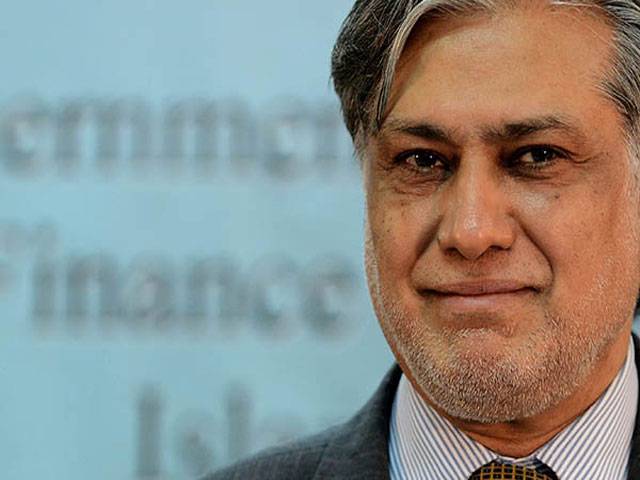ISLAMABAD - The opposition parties led by the Pakistan People’s Party (PPP) and the Pakistan Tehrik-e-Insaf (PTI) will allow Finance Minister Ishaq Dar to complete his budget speech in the parliament on coming Friday without any interruption despite knowing the common man ‘will be neglected’ in the new financial year plan.
“Our response will be shaped largely by what the budget contains. Our area of concern is social uplift of marginalised and those below poverty line,” PPP spokesperson Senator Farhatullah Baber said while talking to The Nation.
“Secondly, our concern is preventing wealth concentration in a few hands and parliamentary oversight and accountability of rising expenditures of the security establishment,” he added.
Depending on how these concerns are addressed, he said, “We will shape or response”.
Senator Baber hinted the PPP will not try to stop Dar during his speech or walk out of the house. “There are no plans to disrupt the budget speech. However, dynamics of the floor sometimes also result in unplanned, unpredictable and spontaneous responses. About that happening or not happening, no one can speak with certainty,” the PPP spokesperson said.
Pakistan Tehrik-e-Insaf (PTI) leader Arif Alvi said, “We will let him (Ishaq Dar) speak and then we will give our response. We won’t stop him during his speech though we know there is nothing in it for the public.”
“If there is something offensive, we reserve the right to protest. Whatever has come forth until now, it is a businessman’s budget,” he commented. The PTI leader said his party wanted the budget to be put before the standing committees before its formal presentation but “our suggestions are never taken seriously.”
“The budget will be as much a surprise for the general public as well as the parliamentarians. Whatever we know out of the media reports or other sources, this budget will further corner the low income class”, he observed. He added, “We will listen to his (Dar) speech and then come up with a response during the debate. We obviously want a revival of the middle class. These businessmen have killed the commoners”.
Asked to comment, Muttahida Qaumi Movement (MQM) leader Ali Raza Abidi said, “We will let him (the finance minister) complete his speech and listen to him silently before coming up with a reaction”.
Abidi said the MQM knows well, how the government has crushed the middle class in the upcoming budget but “we will not create a mess”.
The MQM lawmaker said his party will not allow smooth sailing of the budget during the debate if the government does not give concessions to the downtrodden.
Jamaat-e-Islami (JI) legislator Akbar Sher Khan said, “Our party has not planned anything yet, but the budget speech is not likely to be interrupted”.
He added, “We definitely will present our reservations during the debate on budget”.
Other smaller parties also indicated that Dar will be given an easy time while presenting the budget and a ‘tough time’ at the time of the debate.
The government is considering Rs 1.46 trillion for development in the four provinces for the upcoming fiscal year 2015-16. This development budget will be the highest in the history of Pakistan.
Officials said there will be no increase of expenditures for the Prime Minister and President’s Houses in the budget. The government is also aiming to reduce the fiscal deficit to 5.4 per cent.
On Tuesday, Finance Minister Ishaq Dar said Pakistan will achieve 7 percent growth rate by 2017-18 and desires to enhance the investments in the next 3 years.
Talking to a business delegation here, Dar said the private sector is encouraged to play its part in the development of the country.
On Monday, in a meeting chaired by Prime Minister Nawaz Sharif, the National Economic Council (NEC) had approved development outlay of Rs 1.514 trillion and fixed a GDP growth rate of 5.5 percent for the next financial year.
The development outlay includes Rs 700 billion as federal Public Sector Development Programme (PSDP) and Rs 814 billion as Provincial Annual Development Program (PADP).
Last Tuesday, the federal cabinet had approved the budget strategy paper and proposed targets for the next financial year.
Thursday, April 18, 2024
Opp parties won’t disrupt Dar’s budget speech

Hepatitis Challenge
April 18, 2024
IMF Predictions
April 18, 2024
Wheat War
April 18, 2024
Rail Revival
April 17, 2024
Addressing Climate Change
April 17, 2024
Justice denied
April 18, 2024
AI dilemmas unveiled
April 18, 2024
Tax tangle
April 18, 2024
Workforce inequality
April 17, 2024
New partnerships
April 17, 2024
ePaper - Nawaiwaqt
Advertisement
Nawaiwaqt Group | Copyright © 2024





